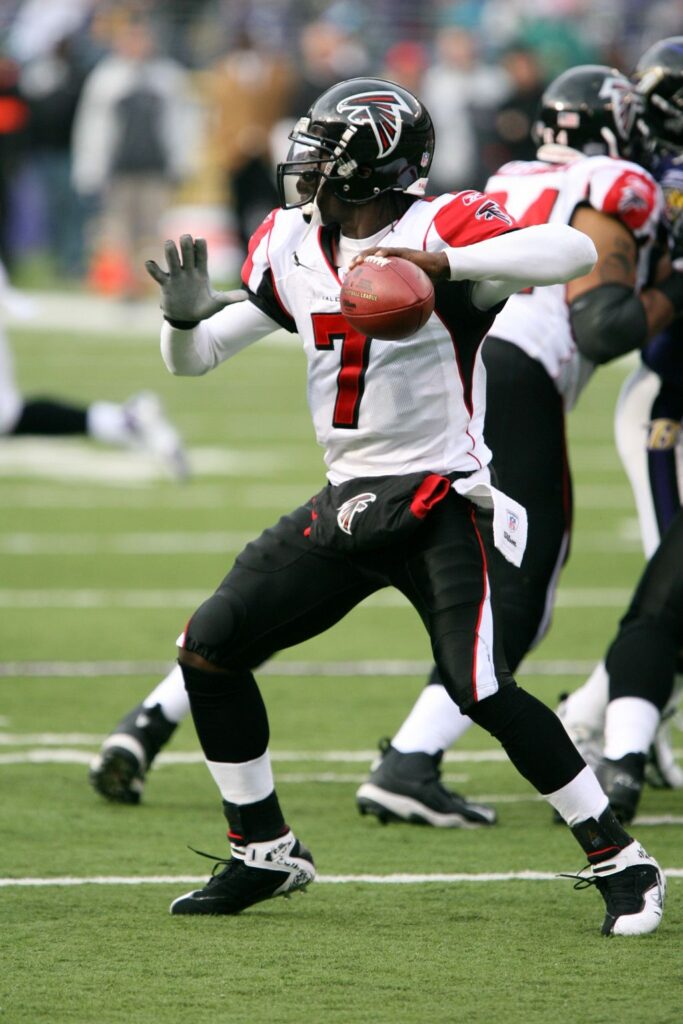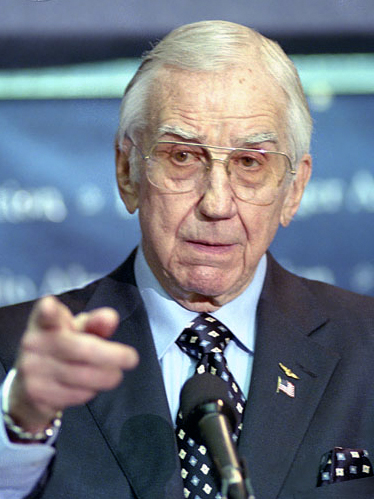
Hollywood, the music industry, sports arenas, and even the world of reality television promise glittering futures, boundless opportunities, and, for a lucky few, unimaginable wealth and fame. We watch in awe as stars rise, achieving seemingly untouchable status, living lives that most can only dream of. Yet, beneath the dazzling veneer of celebrity, there’s a treacherous current that can pull even the most successful figures into a whirlpool of scandal, financial ruin, and obscurity, often leaving them with little hope of truly bouncing back.
It’s a stark reminder that immense fortune and widespread adoration don’t come with a lifetime guarantee. The trajectory from penthouse to pauper, from adulated icon to a cautionary tale, can be shockingly swift, often fueled by a potent mix of poor decisions, escalating legal woes, persistent personal struggles, and the relentless, unforgiving glare of public scrutiny. When the spotlight dims, the endorsements vanish, and the money dissipates, some manage to claw their way back, but for many, the fall is permanent, reshaping their legacy forever.
Today, we’re diving deep into the compelling, often heartbreaking stories of those who reached the absolute pinnacle of success, only to see it all crumble before their very eyes. These aren’t merely tales of financial missteps; they are sagas of shattered reputations, lost careers, and the heavy, often unbearable price of fame. Join us as we explore the initial chapters of these dramatic downfalls, uncovering the pivotal moments and personal choices that led these once-bright stars to lose it all, finding themselves in a place from which they could never fully recover.
_(cropped).jpg/440px-Wesley_Snipes_(41969097750)_(cropped).jpg)
1. **Wesley Snipes: The Unforgiven Taxman’s Toll**In the vibrant landscape of 1990s and early 2000s Hollywood, few stars shone as brightly or as commandingly as Wesley Snipes. He was a dynamic force on screen, effortlessly transitioning between high-octane action blockbusters, compelling dramas, and even comedic roles, cementing his status as a legitimate superstar. His iconic portrayal of the vampire hunter Blade, in particular, made him a global sensation, a household name whose career seemed destined for an unstoppable ascent, promising even greater heights and artistic recognition.
However, as Snipes reached what many considered the zenith of his career, the first insidious cracks began to appear in the edifice of his success. Reports emerged from the set of *Blade: Trinity* detailing significant clashes with the director and his co-stars, an unwelcome narrative that quickly earned him the dreaded and career-damaging “difficult to work with” label within the notoriously unforgiving entertainment industry. Such a reputation can be incredibly damaging, often signaling a shift in how Hollywood perceives a star, frequently leading to fewer and less significant opportunities as producers and directors become hesitant to collaborate.
The true seismic event, however, came from a different, far more serious arena: the legal system. Snipes was ultimately convicted and sentenced to three years in prison for tax evasion, a monumental blow that not only stripped him of his personal freedom but also tragically robbed him of precious, formative time during a critical period of his professional career. This incarceration meant a significant and unavoidable absence from the screen, creating a vacuum that was quickly filled by other rising talents, making any future comeback an even steeper and more challenging climb in a fickle industry.
While Snipes, in a poignant 2020 interview, reflected on the profound experience as one that ultimately made him a “clearer man,” the stark reality of his post-prison career has been undeniably different and far less luminous. He may have found a renewed sense of self and purpose, but the widespread fame, A-list recognition, and consistent leading roles he once commanded have largely eluded him. His story stands as a particularly stark and public reminder of how even the most celebrated careers can be irrevocably derailed, not just by creative differences, but by severe legal entanglements that cast a long, enduring shadow over one’s professional legacy.

2. **Michael Vick: The Lingering Stain of a Fallen Star**Before 2007, the name Michael Vick was synonymous with electrifying athletic brilliance and unparalleled talent on the professional football field. As one of the NFL’s brightest and most dynamic stars, he captivated fans across the nation with his incredible speed, elusive agility, and formidable arm strength, leading his teams with a charisma that seemed destined for a place among the sport’s all-time legends. He was a beacon of promise, a franchise quarterback whose future appeared limitless, adorned with massive contracts and highly sought-after endorsement deals that solidified his status as a national icon.
Then, a seemingly unrelated drug investigation involving his cousin took an unexpected and devastating turn, leading authorities directly to Vick’s property where they uncovered an illegal dog-fighting ring. While this wasn’t his first interaction with legal issues, it was by far the most catastrophic, unraveling his meticulously crafted public image and illustrious career in a single, brutal moment. The scandal sent shockwaves of outrage and condemnation through the sports world and far beyond, igniting a firestorm of criticism from animal rights advocates and the general public alike, who felt betrayed by his actions.
The consequences were immediate, far-reaching, and relentlessly severe. Vick’s once-sterling reputation suffered an irreparable blow, transforming him from a revered athlete into a widely reviled figure almost overnight. He lost his personal freedom, serving a 21-month prison sentence, and his meticulously built financial empire imploded with astonishing speed. Between the forfeiture of his massive NFL salary, the immediate cancellation of numerous lucrative high-profile endorsements, and a crushing mountain of legal fees and personal debts, Vick was compelled to file for bankruptcy in 2008, a stark and public illustration of how quickly immense wealth can dissipate under scandal.
Today, while Michael Vick has admirably managed to get back on his feet, working towards rehabilitation and even making a return to professional football for a time, that indelible stain on his reputation regrettably persists. The public memory of his egregious involvement in the dog-fighting scandal remains an unshakeable and significant part of his narrative, proving that some wounds to public perception are incredibly difficult, if not utterly impossible, to fully heal. His journey serves as a powerful and enduring testament to the profound fragility of fame, the weight of public trust, and the lasting impact of moral transgressions that can haunt a career long after restitution has been made.

3. **Lisa Marie Presley: The Burden of an Inherited Fortune**To be the sole daughter and heir of the “King of Rock and Roll,” Elvis Presley, might sound like the ultimate guarantee of a life destined for unparalleled comfort, artistic freedom, and perpetual prosperity. After Elvis’s untimely passing, his ex-wife, Priscilla Presley, diligently and successfully transformed his complex legacy into a multi-million-dollar brand, working tirelessly to secure a stable financial future for their beloved daughter. When Lisa Marie Presley inherited the estate at the tender age of 25, it was reportedly valued at an astounding $100 million, a sum that seemingly ensured her financial security for not just her lifetime, but for generations to come.
However, the immense reality of managing such a vast inheritance, especially one intricately tied to such an iconic and demanding name, proved to be far more challenging and precarious than it initially appeared. A series of what were later described as “questionable decisions” began to chip away at Lisa Marie’s once-enviable net worth, gradually leading to her losing significant control of the substantial fortune her mother had so painstakingly rebuilt. The complexities of diverse investments, unchecked personal spending habits, and perhaps less-than-stellar financial counsel began to erode the foundations of her immense wealth.
As the years progressed, a mountain of debts began to pile up, leading to a cascade of lawsuits and protracted legal battles that further drained her already diminishing resources. The immense weight of an inherited legacy, combined with personal choices, ongoing financial pressures, and the constant, intense scrutiny of celebrity life, proved to be an overwhelming and ultimately unsustainable burden. It became a public spectacle of dwindling assets and increasing liabilities, painting a grim picture of a once-secure future.
By the time of her tragic death in 2023, Lisa Marie Presley was reportedly a staggering $10 million in the red, a startling and heartbreaking reversal from the vast wealth she had once commanded. Her story is a profoundly poignant one, illustrating with painful clarity that even inheriting a monumental fortune from one of history’s greatest entertainers doesn’t automatically guarantee lasting financial stability or freedom from struggle. Without diligent management, sound judgment, and perhaps a firmer, more cautious hand in financial affairs, even the most robust inheritances can dramatically dwindle, leaving behind a legacy shadowed by significant debt and deep personal struggle, a stark and tragic contrast to the opulence forever associated with her legendary father.

4. **Ed McMahon: The Unforeseen Costs of a Lavish Lifestyle**For decades, Ed McMahon was the quintessential embodiment of American television royalty, a universally beloved fixture in countless households across the nation. As Johnny Carson’s ever-jovial and loyal sidekick on *The Tonight Show* and later the charismatic host of *Star Search*, he was a nightly presence, earning millions and projecting an image of enduring success, unwavering comfort, and a life well-lived. His signature booming laugh, his catchphrases, and his distinctive introductions were iconic, making him a household name intrinsically associated with top-tier entertainment and undeniable prosperity for over three decades.
Yet, behind the seemingly impenetrable façade of his glittering and prosperous career, a vastly different and unsettling story was slowly unfolding in the background. In 2008, fans and the wider public were utterly stunned to discover that McMahon was embroiled in a dire and rapidly escalating financial crisis. Reports surfaced that he was reportedly $644,000 behind in mortgage payments, staring down the very real prospect of foreclosure on his magnificent Beverly Hills mansion, a symbol of his prior affluence. This alarming revelation, however, proved to be just the tip of a much larger iceberg of debt.
The financial woes extended beyond his home; Citibank also initiated a lawsuit against him for a substantial amount of unpaid debts, further deepening his predicament. To compound his already precarious financial situation, a serious neck injury he sustained only added to his medical bills and limited his ability to work, effectively reducing his income streams at a critical juncture. It was a perfect storm of circumstances, but many of the contributing factors were self-made.
In a remarkably candid and deeply revealing conversation with the legendary Larry King, McMahon openly acknowledged his own significant and undeniable role in his financial ruin. He cited a damaging combination of habitual overspending that consistently outpaced his earnings, an unfortunate reliance on risky loans, and the costly financial implications of multiple high-profile divorces. These personal choices, coupled with an apparent inability or unwillingness to curb his increasingly lavish lifestyle even as his income streams became less certain, created an unsustainable financial environment that ultimately led to his downfall. The saddest revelation of all was that a man who had earned untold millions over a legendary career allegedly died with approximately $2 million in debt, leaving behind a legacy tinged with financial tragedy.
5. **MC Hammer: The Meteoric Rise and Catastrophic Fall of a Music Icon**The late 1980s and early 1990s witnessed the truly meteoric rise of MC Hammer, an artist who not only captured the zeitgeist but also embodied the quintessential rags-to-riches narrative that the entertainment industry so often champions. After a couple of moderately successful albums, he exploded onto the global stage with his undeniable smash hit “U Can’t Touch This” from his third studio album, *Please Hammer, Don’t Hurt ‘Em*. He swiftly became a cultural phenomenon, instantly recognizable for his distinctive high-energy dance moves, iconic “Hammer pants,” and infectious, uplifting energy, propelling his net worth, at one point, to an estimated over $33 million according to Forbes.
This seemingly overnight accumulation of immense wealth, however, was tragically matched by an equally extravagant and utterly unchecked spending spree that would ultimately define his financial collapse. Hammer reportedly poured tens of millions into constructing a massive, opulent mansion, complete with lavish amenities, multiple swimming pools, and a full staff that rivaled that of a small hotel. His generosity was legendary but equally unsustainable, extending to numerous dependents, and his lifestyle choices were nothing short of extravagant, quickly consuming his immense fortune at an alarming rate. The warnings from business managers, if any were genuinely heeded, appeared to go unaddressed as the cash flowed freely and ceaselessly.
By 1996, the Midas touch that had so powerfully defined his musical success began to conspicuously wane. Album sales plummeted dramatically, and the previously unchecked, unsustainable spending finally caught up to him with devastating force. Facing an overwhelming and crippling debt of over $13 million, MC Hammer was left with no other option but to formally file for Chapter 11 bankruptcy. It was a shocking and widely publicized declaration for a star who had so recently commanded such immense financial power, cultural influence, and adoration, leaving many to wonder in disbelief how such an astronomical fortune could vanish so rapidly and completely.
Despite several valiant attempts to stage a comeback in the notoriously fickle music industry, the charismatic California rapper never quite managed to fully recover from this dramatic and publicly scrutinized fall from grace. His story has since solidified its place as a classic and frequently cited cautionary tale within pop culture, powerfully demonstrating how even the most spectacular and seemingly unassailable success can be incredibly fleeting and tragically fragile. It vividly illustrates the critical importance of financial prudence, strategic long-term planning, and disciplined management, even when one feels “too legit to quit,” serving as a potent reminder that unchecked lavishness can lead to profound, lasting, and often irreparable financial ruin.

6. **Lauryn Hill: The Unraveling of a Soulful Icon**Lauryn Hill was a force of nature in the 1990s, her influence resonating decades later. As a pivotal member of The Fugees, she helped craft “The Score,” one of the era’s biggest hip-hop albums. Her solo debut, *The Miseducation of Lauryn Hill*, was a critical and commercial triumph, earning multiple Grammys and solidifying her as a singular voice in music, a beacon of artistic integrity and widespread success at a remarkably young age.
However, the immense pressure of rapid fame proved a heavy burden. Following her solo success, Hill began a gradual withdrawal from the public eye. Her infrequent appearances were often marked by a reputation for being notoriously late or unpredictable, frustrating fans and leading to a noticeable decline in her professional consistency. This complicated her relationship with both the industry and her audience.
Then came the definitive blow: a tax scandal. Hill was sentenced to three months in prison for tax evasion, a public humiliation that further strained her career. This tangible consequence of financial mismanagement highlighted profound struggles with the practicalities of maintaining a high-profile career, proving that even the most gifted aren’t immune to legal and financial obligations.
While Hill has continued to perform sporadically, she never truly reclaimed her mainstream prominence or consistent professional output. Her unique talent remains undeniable, but her story is a poignant reminder that immense creative genius doesn’t always translate into a stable public persona. Personal challenges and legal missteps tragically left a once-dominant artist struggling to fully recapture her former glory, her legacy forever intertwined with a complex, unfulfilled narrative.

7. **Charlie Sheen: The Unfiltered Meltdown of a Sitcom King**For a considerable stretch, Charlie Sheen was the undisputed king of television comedy. His role in *Two and a Half Men* made him the highest-paid actor on TV, reflecting his widespread popularity and comedic timing. He cultivated an image of a charming rebel, a persona that resonated with millions and seemed to offer freedom from conventional constraints, making him a perennial topic in Hollywood.
Yet, this image of debauchery began to unravel into a very public meltdown. His struggles with substance use disorder were well-documented, but in 2011, things escalated dramatically. While attending rehab for the third time in a single year, production of his hit show was halted, signaling severe strain on his professional commitments.
The situation exploded when Sheen unleashed “very derogatory, very out-there, anti-Semitic comments” about *Two and a Half Men* creator Chuck Lorre. This egregious public attack led to his immediate termination by CBS and Warner Bros., costing him his lucrative contract. What followed was a bizarre media tour, with Sheen declaring himself a “warlock” with “tiger blood” and “Adonis DNA,” blurring reality and delusion to the public’s fascination and horror.
Despite his talent, Sheen’s career never fully recovered. While he has expressed remorse and attempted a return, the scale of his public unraveling and damage to his reputation proved too vast. His story is a potent symbol of how unchecked personal demons and destructive public behavior, even from an A-list star, can irrevocably shatter a seemingly impregnable career, serving as a lasting cautionary tale.
Read more about: Inside the Staggering Pay Gap: Jon Cryer Reveals He Earned a ‘Third’ of Charlie Sheen’s ‘Two and a Half Men’ Salary Amid Erratic Behavior

8. **Lance Armstrong: The Shattered Image of a Cycling Legend**Lance Armstrong was, for a time, more than just an athlete; he was a global icon of resilience and triumph. A seven-time consecutive winner of the Tour de France, his achievements were legendary. His heroic battle and victory over testicular cancer in 1997 transformed him into a beacon of hope, elevating him beyond sports stardom and making him a powerful advocate for cancer research through his Livestrong foundation.
However, the truth behind his extraordinary dominance eventually came crashing down. Accusations of performance-enhancing drug use, long rumored, reached a tipping point. The United States Anti-Doping Agency’s 2012 report unveiled him as the “ringleader” of a sophisticated doping scandal, a scheme that systematically fueled his victories and shattered the integrity of the sport.
The fallout was swift and devastating. Armstrong was banned for life from competitive sports and stripped of all his Tour de France titles and professional accolades after 1998. Corporate sponsors, including Nike, swiftly abandoned him, resulting in an estimated loss of “US$75 million in one day.” Even his charity, Livestrong, severed ties in 2013, completing the erosion of his public image and professional standing.
Despite his eventual admission to Oprah Winfrey, made only after years of denials, Armstrong’s public image and career never truly recovered. The magnitude of his deception, especially given his role as a cancer survivor, inflicted an irreparable wound on his legacy. He remains a pariah in cycling, a permanent cautionary tale about the perils of cheating and the profound cost of betraying public trust, his name forever linked to one of sports’ greatest scandals.

9. **Lindsay Lohan: The Prodigy Lost in the Limelight**From a tender age, Lindsay Lohan charmed audiences, first capturing hearts with her dual role in *The Parent Trap* remake. Her career trajectory seemed destined for the stratosphere, quickly solidifying her status as a bona fide teen idol with films like *Mean Girls* and *Freaky Friday*. She possessed natural charisma and undeniable talent, making her one of Hollywood’s most promising young stars, seemingly on a path to a long and successful career.
However, as she entered her late teens and early twenties, Lohan’s personal life began to tragically eclipse her professional potential. Her struggles with substance use disorder became a public battle, leading to a relentless cycle of arrests for DUIs involving alcohol and cocaine, repeated stints in rehab (at least five times), and brief jail time. These legal and personal woes turned her life into a revolving door of controversy, making headlines for all the wrong reasons and eroding industry confidence.
The consistent turmoil had a catastrophic impact on her once-thriving career. Producers became hesitant to cast her, leading to a dramatic reduction in film and TV opportunities. She reportedly dropped multiple promising projects, citing “fatigue” and “dehydration,” fueling the narrative of an unreliable star. Her finances suffered immensely due to endless legal fees, rehab costs, and diminishing income, leading to a precarious financial state.
While Lohan has shown recent signs of a comeback, including sobriety and the end of her conservatorship in 2022, the years of erratic behavior and missed opportunities left an indelible mark. The luminous teen prodigy is largely a distant memory, replaced by a narrative of squandered potential and a career that never regained its former momentum. Her journey is a stark illustration of how early fame, coupled with personal struggles, can derail even the most promising talents, leaving them struggling to recapture a spotlight that has long moved on.
Read more about: From Tiny Talents to Tinseltown Titans: 14 Child Stars Who Conquered Hollywood and Won Our Hearts

10. **Mel Gibson: The A-Lister’s Steep Descent into Scandal**Mel Gibson was undeniably one of Hollywood’s most formidable leading men, a true A-lister whose star power commanded massive box office success and critical acclaim. From his iconic roles in *Mad Max* and *Lethal Weapon* to his Oscar-winning directorial masterpiece *Braveheart*, he proved versatile as both an actor and filmmaker. His rugged charm and talent made him a Hollywood staple, securing his place at the industry’s apex for decades.
However, in the mid-2000s, Gibson’s public image began a rapid and devastating implosion, triggered by a series of highly inflammatory incidents. In July 2006, following a DUI arrest, he launched into an antisemitic tirade against a Jewish police officer, notoriously stating, “F**king Jews… the Jews are responsible for all the wars in the world. Are you a Jew?” This shocking outburst sparked immediate, widespread condemnation.
The initial scandal was only the beginning. Further allegations surfaced, including accusations of domestic abuse from his then-wife and misogynistic remarks, cementing his image as a volatile, prejudiced figure. The cumulative effect of these controversies was catastrophic; his once-unassailable position in Hollywood quickly evaporated. Major studios became hesitant to work with him, and his career opportunities significantly dwindled, transforming him from a bankable superstar into persona non grata in many circles.
Though Gibson has made sporadic film appearances since, and found some critical success with *Hacksaw Ridge*, he never fully regained the mainstream adoration or prolific A-list career he once enjoyed. The indelible stain of his public outbursts and allegations proved too significant to erase, leaving his legacy fractured and controversial. His story is a powerful testament to how even celebrated figures can experience an irrecoverable fall when personal actions and prejudices fundamentally clash with societal values and public expectations, forever altering their professional landscape.
These powerful narratives, from the unyielding grip of the taxman to the tragic unraveling of personal choices, vividly underscore a universal truth: fame and fortune, no matter how immense, are often fleeting. The stories of these once-shining stars serve as more than mere cautionary tales; they are poignant reflections on the immense pressures, critical decisions, and unforeseen challenges that can swiftly transform a glittering ascent into an irreversible descent. While some might find paths to personal redemption, the indelible marks left by their public falls — shattered reputations, diminished careers, and lost wealth — are a sobering reminder that in the unforgiving glare of the spotlight, not everyone gets a second act that truly brings them back from the brink. It’s a compelling, often heartbreaking testament to the fragility of success and the enduring consequences of a moment’s folly or a lifetime’s struggle.




